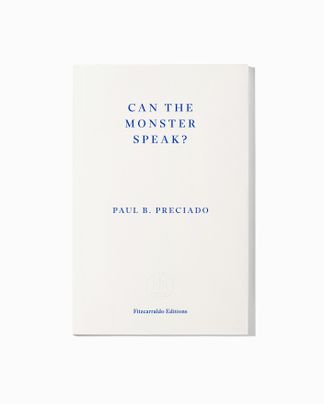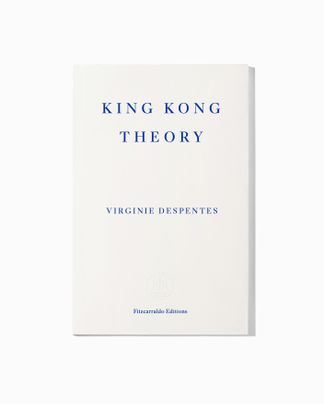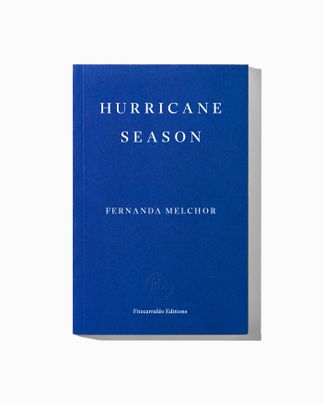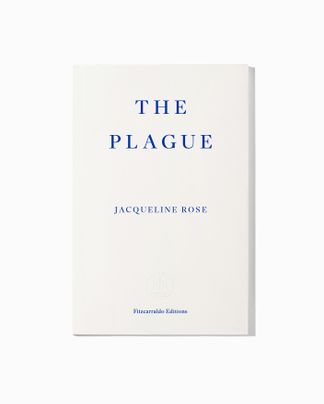Uranus is the coldest planet in the solar system, a frozen giant named after a Greek deity. It is also the inspiration for Uranism, a concept coined by the writer Karl Heinrich Ulrichs in 1864 to define the ‘third sex’ and the rights of those who ‘love differently’. Following in Ulrichs’s footsteps, Paul B. Preciado dreams of an apartment on Uranus where he can live, free of the modern power taxonomies of race, gender, class or disability. In this bold and transgressive book, Preciado recounts his transformation from Beatriz into Paul B., and examines other processes of political, cultural and sexual transition, reflecting on socio-political issues including the rise of neo-fascism in Europe, the criminalization of migrants, the harassment of trans children, the technological appropriation of the uterus, and the role artists and museums might play in the writing of a new social contract. A stepchild of Michel Foucault and Judith Butler, Preciado argues, with courage and conviction, for a planetary revolution of all living beings against the norm.
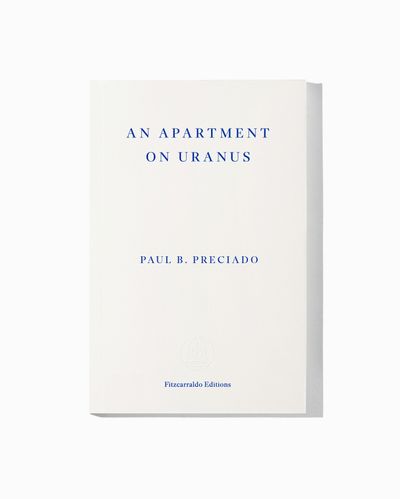
An Apartment on Uranus
Translated by Charlotte Mandell, with a foreword by Virginie Despentes
French paperback with flaps, 280 pages
Published 15 January 2020
An Apartment on Uranus
Translated by Charlotte Mandell, with a foreword by Virginie Despentes
INTRODUCTION: AN APARTMENT ON URANUS
As the years passed, I learned to think of dreams as an integral part of life. There are dreams that, because of their sensory intensity, their realism or precisely their lack of realism, deserve to be introduced into autobiography, just as much as events that were actually lived through. Life begins and ends in the unconscious; the actions we carry out while fully lucid are only little islands in an archipelago of dreams. No existence can be completely rendered in its happiness or its madness without taking into account oneiric experiences. It’s Calderón de la Barca’s maxim reversed: it’s not a matter of thinking that life is a dream, but rather of realizing that dreams are also a form of life. It is just as strange to think, like the Egyptians, that dreams are cosmic channels through which the souls of ancestors pass in order to communicate with us, as to claim, as some of the neurosciences do, that dreams are a ‘cut-and-paste’ of elements experienced by the brain during waking life, elements that return in the dream’s REM phase, while our eyes move beneath our eyelids, as if they were watching. Closed and sleeping, eyes continue to see. Therefore, it is more appropriate to say that the human psyche never stops creating and dealing with reality, sometimes in dreams, sometimes in waking life.
Whereas over the course of the last few months my waking life has been, to use the euphemistic Catalan expression, ‘good, so long as we don’t go into details,’ my oneiric life has had the power of a novel by Ursula K. Le Guin. During one of my recent dreams, I was talking with the artist Dominique González-Foerster about my problem of geographic dislocation: after years of a nomadic life, it is hard for me to decide on a place to live in the world. While we were having this conversation, we were watching the planets spin slowly in their orbits, as if we were two giant children and the solar system were a Calder mobile. I was explaining to her that, for now, in order to avoid the conflict that the decision entailed, I had rented an apartment on each planet, but that I didn’t spend more than a month on any one of them, and that this situation was economically and physically unsustainable. Probably because she is the creator of the Exotourism project, Dominique in this dream was an expert on extra-terrestrial real-estate management. ‘If I were you, I’d have an apartment on Mars and I’d keep a pied-à-terre on Saturn,’ she was saying, showing a great deal of pragmatism, ‘but I’d get rid of the Uranus apartment. It’s much too far away.’
Awake, I don’t know much about astronomy; I don’t have the slightest idea of the positions or distances of the different planets in the solar system. But I consulted the Wikipedia page on Uranus: it is in fact one of the most distant planets from Earth. Only Neptune, Pluto and the dwarf planets Haumea, Makemake and Eris are further away. I read that Uranus was the first planet discovered with the help of a telescope, eight years before the French Revolution. With the help of a lens he himself had made, the astronomer and musician William Herschel observed it one night in March in a clear sky, from the garden of his house at 19 New King Street, in the city of Bath. Since he didn’t yet know if it was a huge star or a tailless comet, they say that Herschel called it ‘Georgium Sidus’, the Georgian Star, to console King George III for the loss of the British colonies in America: England had lost a continent, but the King had gained a planet. Thanks to Uranus, Herschel was able to live on a generous royal pension of two hundred pounds a year. Because of Uranus, he abandoned both music and the city of Bath, where he was a chapel organist and Director of Public Concerts, and settled in Windsor so that the King could be sure of his new conquest by observing it through a telescope. Because of Uranus, they say, Herschel went mad, and spent the rest of his life building the largest telescope of the eighteenth century, which the English called ‘the monster’. Because of Uranus, they say, Herschel never played the oboe again. He died at the age of eighty-four: the number of years it takes for Uranus to go around the sun. They say that the tube of his telescope was so wide that the family used it as a dining hall at his funeral.
Uranus is what astrophysicists call a ‘gas giant’. Made up of ice, methane and ammonia, it is the coldest planet in the solar system, with winds that can exceed 900 kilometres per hour. In short, the living conditions are not especially suitable. So Dominique was right: I should leave the Uranus apartment.
But dream functions like a virus. From that night forward, while I’m awake, the sensation of having an apartment on Uranus increases, and I am more and more convinced that the place I should live is over there.
(…)
frieze 2020 List of Other Futures
‘Paul B. Preciado has the magic ability to fire off imperatives that don’t feel bossy, but rather incite us to join him in whatever crackling energy, urgent curiosity, and dynamic nomadism is flowing through him. Reading these chronological missives offers the real pleasure of Preciado’s company in time, and inspires us not just to stay with our trouble, but to greet it with unstoppable speech, complex solidarity, glitter, and defiance.’
— Maggie Nelson, author of The Argonauts
‘An arresting, bold and moving book about crossing boundaries – of body, sex, nation, species and language – by an important dissident of dualism.’
— Amia Srinivasan, author of The Right to Sex
‘Like all of us, it turns out, Preciado was born on Uranus and dragged down to earth against his will. The language of that fall from grace won’t get us home, but at least Preciado helps us imagine what might.’
— Kevin Brazil, ArtReview
‘An Apartment on Uranus forces us to remember that our intimacies with ourselves and others, our bodies, even our pleasure – our love affairs – are not distinct from, or untouched by, the biopolitical worlds we exist in.’
— Bryony White, frieze
‘The writings thread together concepts around the liminal spaces of subjects ranging from language and gender to migration and cities in flux, using a markedly corporeal language that encourages an empathic reading.’
— ArtReview
‘Infinitely piercing perceptions on transit, the refugee crisis, the European financial crisis, border-crossings, neo-colonialism, the reassignment of gender identity and exile. An urgency besets these short texts afire with the voice of a “dissident of the sex-gender system” who advocates that ”the entire political space … must begin to transition”. The world needs a trans-becoming and this is its prologue.’
— Anthony Hawley, frieze
‘It left me feeling like what I thought was Earth had been another planet all along. My copy is full of exclamation marks in the margins.’
— Alice Wickenden, Totally Dublin
‘An Apartment on Uranus is essential, and essentially transformative…. It is a book about wanting things to be better and different.’
— Alexandra Marraccini, Review 31
‘Utterly radical and breathtakingly beautiful…. Though this book is in no small way a document of that gender transition, it is also a swift and revolutionary reflection on politics, art, technology, and more, from one of the most keen and inspired thinkers of our time. As complex as many of the topics are, the precision and poetic spirit of the writing, and the brevity of each individual piece – each column being approximately 1,500 words – make this a firecracker of a book, something like watching a wrestling match between language and reality.’
— Buzzfeed
‘An Apartment on Uranus has refreshing takes on identity, boundaries, tourism, gender, nation states, multi-species love and nationalism through a series of short letters. It is written in an engaging and eye-opening way, rather than lecturing or moralising.’
— Jakob Kudsk Steensen, The Arts Newspaper
Praise for Testo Junkie
‘Testo Junkie is a wild ride. Preciado leaves the identity politics of taking T to others, and instead, in the tradition of William S. Burroughs, Kathy Acker, and Jean Genet, he conducts a wild textual experiment. The results are spectacular….. The gendered body will never be the same again.’
— Jack Halberstam, author of The Queer Art of Failure
‘Paul B. Preciado’s brilliant book oscillates between high theory and the surging rush of testosterone. Flush with elegant theoretical formulations, lascivious sex narratives, and astute histories of gender, Testo Junkie is a key text to comprehend the deep interconnectedness of sex and drugs today.’
— José Esteban Muñoz, author of Cruising Utopia
Read an interview with Paul B. Preciado on i-D
Paul B. Preciado is the author of Can the Monster Speak?, An Apartment on Uranus, Counter-Sexual Manifesto and Testo Junkie, among other books, and wrote and directed the film Orlando, My Political Biography. He is the Director of the Institute for Planetary Transition at LUMA Arles, France. He was born in Spain and lives in France. Dysphoria Mundi is his third book to appear with Fitzcarraldo Editions.
Charlotte Mandell has translated fiction, poetry, and philosophy from the French, including works by Proust, Flaubert, Genet, Maupassant, Blanchot and many other distinguished authors. She has received many accolades and awards for her translations, including a Literature Translation Fellowship from the National Endowment for the Arts for Zone by Mathias Enard. Her translation of Enard’s Compass was shortlisted for the 2017 Man Booker International Prize.

